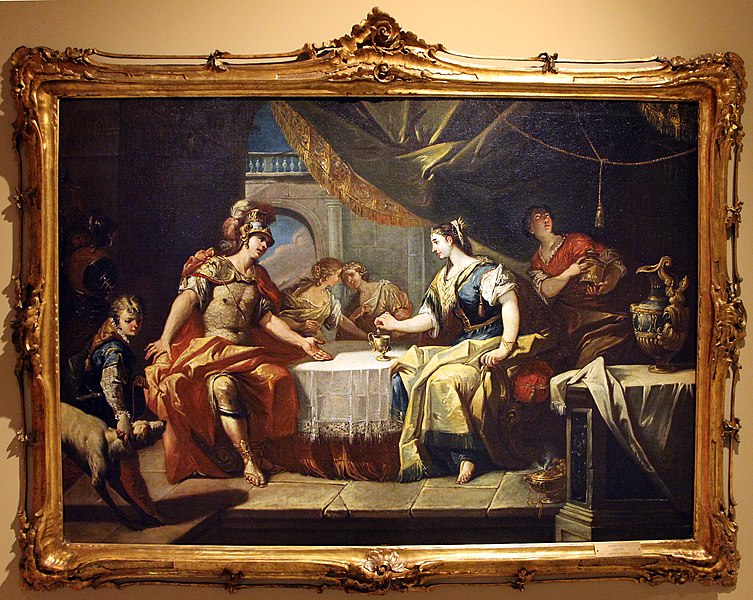A dinner for ten million sesterces
Antony and Cleopatra's Expensive Dinner

Gaspare Diziani, convito di Antonio e Cleopatra, 1745 ca. - wikicommons
A famous anecdote, narrated by Pliny the Elder in “Natural History”, tells the story of a bet for a dinner costing ten million sesterces. The protagonists were two lovers, Cleopatra, the last queen of Egypt, and Antony. Cleopatra owned two large and highly valuable pearls, extraordinary jewels, masterpieces of nature, gifted by the Eastern kings. Every day, Antony consumed refined foods and boasted about his luxuries in a superb and irreverent manner, pondering what could be added to those magnificent banquets. Cleopatra replied that she would consume ten million sesterces in a single dinner. Antony accepted the challenge, and Cleopatra arranged the usual sumptuous banquet for Antony the next day. Jokingly, he continued to ask for the bill. The woman confirmed that the dinner was just a prelude and that the cost would be as stated, meaning she alone would eat ten million sesterces.The servants, duly instructed by the queen, only placed a vase containing vinegar, a highly corrosive liquid, before her at the second course. Cleopatra took one of the pearls she wore on her ears, threw it into the vinegar which dissolved the pearl until it disappeared, and then drank it. Lucius Plancus, the judge of that bet, immediately took the other pearl from Cleopatra's ear before it could also be destroyed and declared Antony's defeat. The twin pearl became famous. Once the victorious queen was captured, the pearl was cut in half so that each half could be placed in both ears of Venus in Rome, in the Pantheon, as a reminder of their dinner.
Velleio II 83 1-2. L’episodio è commentato in G. Cresci Marrone, Orazio, Munazio Planco e il “vecchio del mare”, in <<Athenaeum>>, LXXXVII 1999, pp. 111-120; P. Montlahuc, Lucius Munatius Plancus dans la <<Révolution romaine>>: du stéréotype du traître à la figure du survivant politique, in Des déserts d’Afrique au pays des Allobroges. Hommages offerts à François Bertrandy, I, a cura di F. Delrieux-F.Kaiser, Université de Savoie, 2011, pp. 325-356. Plinio, La storia naturale, IX 119-121.
Artemisia
2025-04-28
Salvatore Ciccarello
